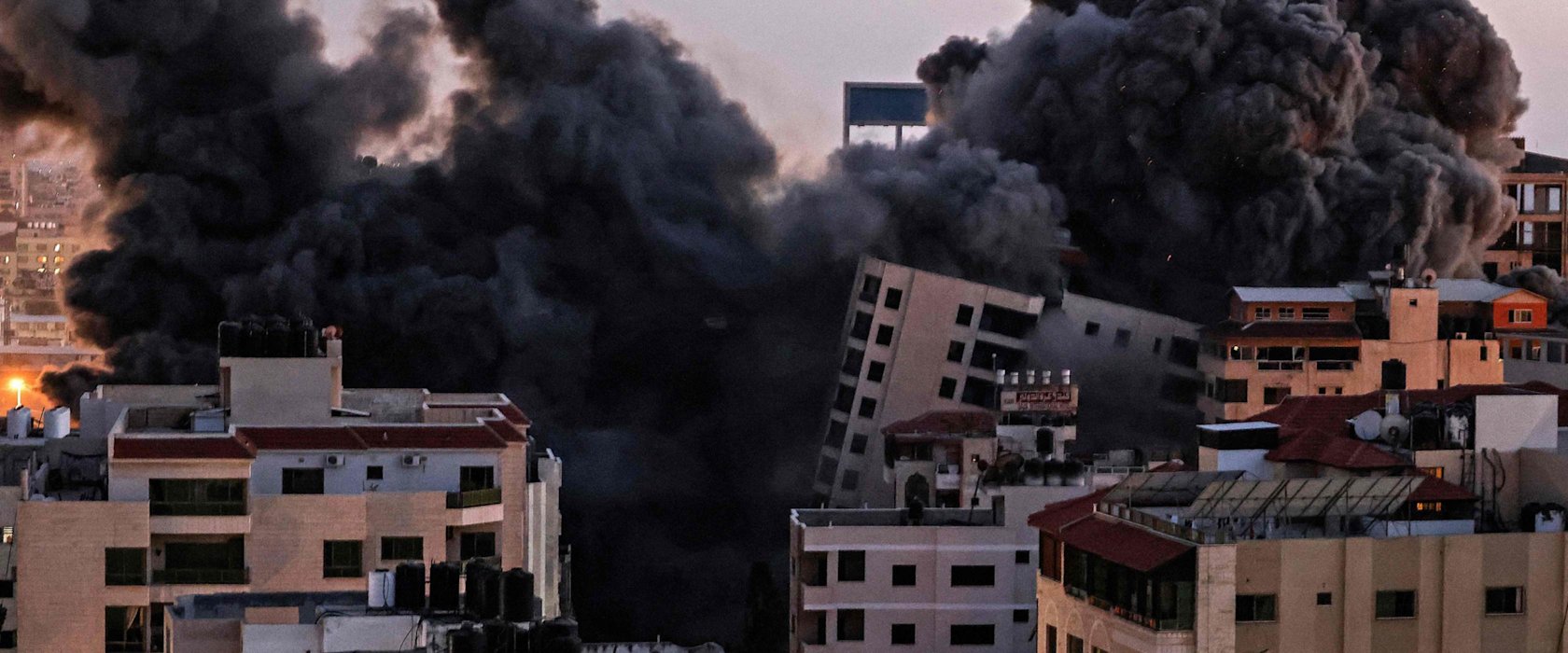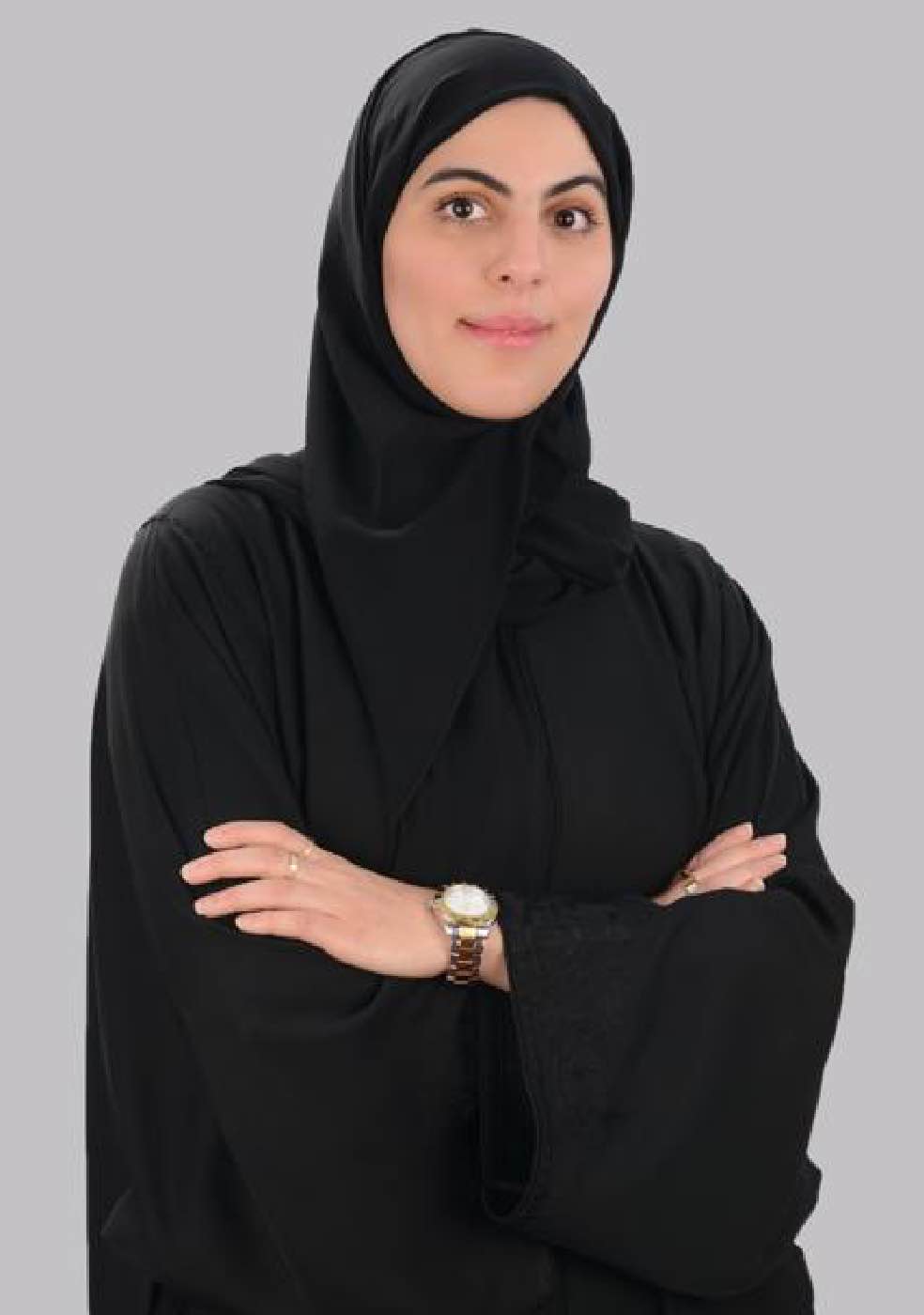Coronavirus (COVID-19) Updates
For the latest COVID-19 information and updates from Qatar Foundation, please visit our Statements page

Smoke rises after Israeli airstrikes on Gaza City, the Gaza Strip, Palestine
Image source: Nick_ Raille_07 from ShutterstockTraumatized people struggle to feel safe about the future, Sidra Medicine expert says
Filled with emotions, Faten Ashour was left speechless, unable to find words to describe her feelings after Israeli forces stormed into her family`s home in Palestine.
Although this is not a new normal to Palestinians, these miserable and sorrowful events have aroused the world`s sympathy for Palestine
With this tragic situation unfolding in her Palestinian homeland – especially in Gaza, where innocent children were killed by Israeli bombardments in May – she felt more depressed and powerless as she watched and learned about events from thousands of miles away.

Professor Muhammad Waqar Azeem, Inaugural Chair of Psychiatry at QF member Sidra Medicine.
“Although this is not a new normal to Palestinians, these miserable and sorrowful events have aroused the world`s sympathy for Palestine,” says Ashour, who holds a master's degree in Translation Studies from the College of Humanities and Social Sciences at Qatar Foundation’s Hamad Bin Khalifa University (HBKU).
“I didn’t feel the joy of Eid because of the news coming from Palestine. When your fellow citizens are terrified, stricken, arrested, fallen martyrs, and displaced from their homes by Israeli aggressors, every celebration becomes meaningless.”
I was only focused on reporting the news which showcases how strong and steadfast the Palestinians are in the face of aggression. My support for my fellow citizens gave me strength, determination and happiness
As Professor Muhammad Waqar Azeem, Inaugural Chair of Psychiatry at QF member Sidra Medicine, explains: “The more shocks people receive through recent experiences, the more they feel pessimistic and defeated. They even might struggle to feel safe about their and their families` future. There's no magic way to boost their wellbeing but escaping from a stressful environment is a significant step to healing”.
“However, it is important to stress that no two people are alike. Each one can get over a shock in a different way, as there is no one-size-fits-all solution. Although traumatized people initially feel feeble and emotionally unable to engage with life, their psychological responses, while painful, are fleeting. As clinicians, we need to focus more on the moments in which a traumatized person was in control of the past challenges faced, and always remind them how they previously managed difficult situations by solving problems, one after another.”
The more shocks people receive through recent experiences, the more they feel pessimistic and defeated. They even might struggle to feel safe about their and their families` future
Ashour was constantly following the events taking place in Palestine in May through TV and social media. She also joined a group of Palestinian activists who were covering the situation from the field and sharing updates with the world.
“I was only focused on reporting the news which showcases how strong and steadfast the Palestinians are in the face of aggression,” she said. "My support for my fellow citizens gave me strength, determination and happiness.
“Following and sharing the news to defend a cause that is my top priority, Palestine, created an internal conflict for me. And to stay in good mental health, I tried to detox from negative media every so often by disconnecting from social media and TV. However, the steadfastness and unity of the Palestinian people against the Israeli aggression made me feel strong and determined and encouraged me to follow the news with pride and honor.”

Dr. Ahsan Nazeer, Division Chief, Child and Adolescent Mental Health- Sidra Medicine.
According to Dr. Ahsan Nazeer, Division Chief, Child and Adolescent Mental Health Services- Sidra Medicine: “over the past decades, the proliferation of social media has made it easier to share real-time photos and videos which are unfiltered and can be accessed by anyone at any time. On one hand this exposure to live events can create a global collective experience but on the other, it can also increase worries and fears in the general population.”
Research has shown that the increased consumption of visual content is likely to cause persistent mental health problems
He emphasized that limiting exposure to news about wars, and seeking information from reliable sources, helps to reduce worry. “Research has shown that the increased consumption of visual content is likely to cause persistent mental health problems and functional impairment, including intrusive thoughts, fears, anxiety, increased physiological and psychological arousal, and heart problems.”
Dr. Nazeer explained that reducing digital and mainstream media consumption is one of the main strategies for overcoming these types of shocks. “It is also important for the people who are repeatedly getting exposed to traumatic news and images, to support each other, keep on with their daily routine, and realize that being worried and stressed, rather than helping their loved ones in war-torn areas, may cause more dysfunction in their lives”, he added.

Faten Ashour, she holds a master's degree in Translation Studies from the College of Humanities and Social Sciences at Qatar Foundation’s Hamad Bin Khalifa University (HBKU).
“Once survivors have escaped the war zone to a safe place, it is important to be in touch with them in the following days and weeks to help them manage their anxiety and worries so that they can cope with the ongoing stressful events in a better way” Dr. Nazeer said.
The global support of Palestinians and the community services provided to them are important in protecting them and enhancing their recovery, added Dr. Nazeer, who explained that this support takes different forms – including emotional, financial, and physical – as well as enhancing a person’s sense of belonging to their country and their cause.

